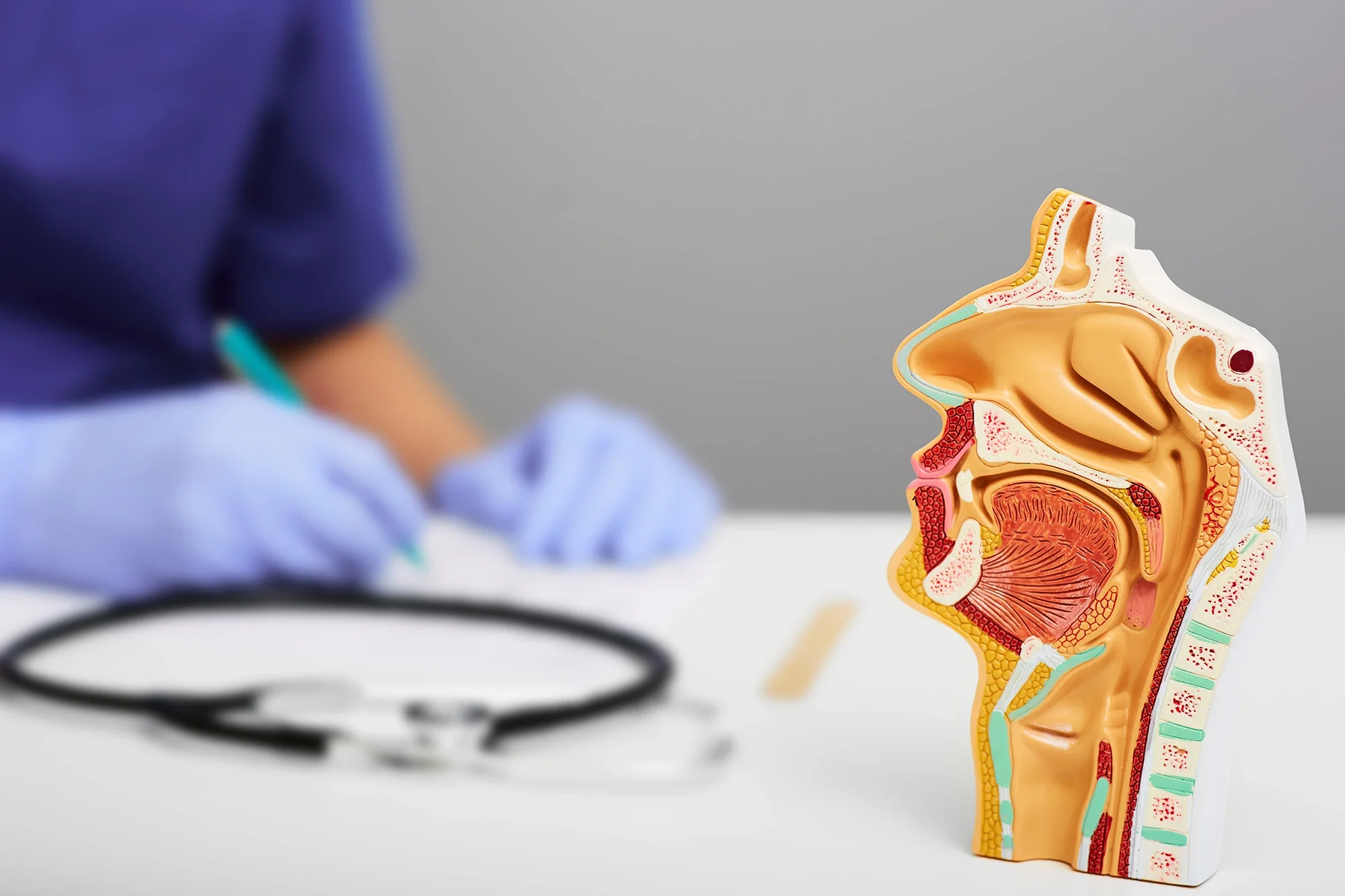The Ultimate Guide to Common Paediatric ENT Conditions
A child’s ear, nose, and throat (ENT) health plays a vital role in their daily functioning and long-term development. For example, untreated ear infections can delay speech, while sleep apnoea may cause daytime fatigue and affect learning.
If not addressed promptly, ENT problems can have lasting effects. Early intervention by an ENT specialist can mitigate these risks, helping children thrive both physically and emotionally.
Common Paediatric ENT Conditions
Children are often susceptible to ENT issues due to their developing anatomy and immune systems. Common conditions among children include:
Ear Infection (Otitis Media)
Otitis media develops when fluid accumulates behind the eardrum, often after a cold, providing a breeding ground for bacteria.
Symptoms:
Pulling or tugging at the ears
Not responding to speech or quiet sounds
Excessive crying
Fever
Fluid drainage from the ear
Hearing Loss
Hearing loss can be temporary or permanent and may significantly impact speech and language development. It can range in severity from mild to profound.
Symptoms:
Difficulty understanding speech and sounds in noisy environments
Needing to turn up the volume on electronic devices
Asking others to repeat themselves often
Not responding when called or spoken to
Speaking loudly or unclearly
Difficulty following instructions
Sore Throat (Tonsillitis)
Tonsillitis, a common cause of sore throat, is inflammation of the tonsils, often due to viral or bacterial infections.
Symptoms:
Red, swollen tonsils
White or yellow coating on the tonsils
Painful swallowing
Fever
Swollen lymph nodes in the neck
Bad breath
Drooling or refusal to eat (in young children unable to describe symptoms)
Sinusitis
Sinusitis is the inflammation or infection of the sinuses, often following a cold or allergic reaction. Because children’s sinuses are still developing, they may be more vulnerable to these infections.
Symptoms:
Nasal Congestion
Facial discomfort around the cheeks, forehead or between the eyes
A dull headache or facial pain
Reduced sense of smell or taste
Persistent cough, especially at night
Unexplained bad breath
Fever
Sensitivity or aching in the teeth
Rhinitis
Rhinitis refers to inflammation of the nasal passages. In children, it is often triggered by allergies such as dust mites, pollen or pet dander.
Symptoms:
Sneezing
Runny nose
Itchy nose, throat, eyes or ears
Nasal congestion
Watery eyes
Nosebleeds
Dark circles under the eyes (allergic shiners)
Sleep Apnoea
Obstructive sleep apnoea (OSA) occurs when a child’s breathing is repeatedly interrupted during sleep due to airway blockage. It is often linked to enlarged tonsils or adenoids.
Symptoms:
Loud snoring, breathing pauses or gasping sounds during sleep
Restless sleep
Bedwetting
Daytime fatigue
Behavioural changes
Poor concentration and hyperactivity
When Should You Bring Your Child to a ENT Specialist?
Parents should bring their children to an ENT specialist if they experience any of the following symptoms:
Frequent or severe nosebleeds
May point to allergies or nasal structure issues.
Hearing concerns or delayed speech
May signal chronic ear problems or hearing loss.
Persistent runny nose or sinus infections
May be caused by allergies or chronic sinusitis.
Frequent sore throat
May stem from tonsil infections.
Loud snoring
Especially if accompanied by breathing pauses—this may indicate sleep apnoea.
Ongoing congestion or allergy symptoms
A specialist can offer allergy testing or targeted treatment.
If these symptoms persist despite general treatment, a paediatric ENT specialist can provide a more accurate diagnosis and tailored care plan.
Ways to Prevent Paediatric ENT Conditions from Developing
Preventing paediatric ENT (ear, nose, and throat) conditions involves a combination of proactive measures that support your child’s overall health and immune defences. Here are the key strategies:
Maintain Good Hygiene
Teach regular hand washing and covering the mouth when coughing or sneezing. These habits reduce the spread of germs that cause infections.
Foster Healthy Lifestyle Habits
A well-balanced diet, daily activity, and enough rest help strengthen your child’s immune system, making them more resilient against infections.
Recognise and Manage Your Child's Allergies
If your child has known allergies, reduce exposure to triggers like dust mites, pollen or pet dander. Discuss treatment options with your doctor or an allergist, if necessary.
Ensure Timely Vaccination for Your Child
Vaccinations play a crucial role in preventing diseases that can lead to ENT complications.
Maintain Proper Ear Care
Avoid inserting objects into your child’s ears. After swimming or bathing, dry ears gently to prevent moisture buildup that could lead to infection.
Get Regular Check-Ups
Routine visits with your child’s doctor or an ENT specialist can help detect issues early.
If your child shows signs of persistent ENT issues, prompt action is key. Contact Dr Valerie Tay at Aspire ENT Clinic for a consultation to safeguard your child’s ENT health. Early attention can make all the difference in your child’s comfort, health and development.

